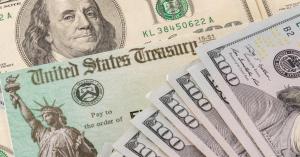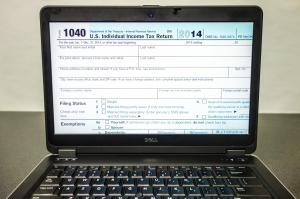With the U.S. continuing to distribute more than 150 million stimulus checks so far as part of the Coronavirus Aid, Relief, and Economic Security Act, the term “helicopter money” has been popping up in conversation. But what exactly does the term mean, and from where does it originate? “Helicopter money” was first used by Nobel Prize-winning economist Milton Friedman in a 1969 paper entitled “The Optimum Quantity of Money,” in which he proposes that handing out money to the public is one way to jumpstart a lagging economy.
Friedman wrote: “Let us suppose now that one day a helicopter flies over this community and drops an additional $1,000 in bills from the sky, which is, of course, hastily collected by members of the community. Let us suppose further that everyone is convinced that this is a unique event which will never be repeated.”
Videos by PopCulture.com
Explaining the principle further, Pieria Magazine editor and co-founder Tomas Hirst wrote for the World Economic Forum, “The basic principle is that if a central bank wants to raise inflation and output in an economy that is running substantially below potential, one of the most effective tools would be simply to give everyone direct money transfers.”
“In theory, people would see this as a permanent one-off expansion of the amount of money in circulation and would then start to spend more freely, increasing broader economic activity and pushing inflation back up to the central bank’s target,” Hirst continued.
Put more simply, the stimulus checks being distributed in the U.S. don’t check off some of Friedman’s central tenants. González García, an economy professor American University, explained in an interview with Huffington Post, “Sending checks is a fiscal helicopter, not a monetary helicopter. The term helicopter money has traditionally been used to refer to money created by a central bank and distributed directly to citizens. This is not what has been approved in the United States, where we have the federal government distributing these checks.”
“The resources to pay those checks are purely fiscal [taxes]. If all this spending ended up being financed with an increase in public debt that ends up being monetized, then we could speak of a monetary helicopter. But we are not there yet,” he continued. “Checks reduce the likelihood that families will default on their loans and mortgages and, with it, the risk that the health crisis will lead to a financial crisis. Also help to sustain demand minimally, although they are not conceived as a fiscal stimulus measure because supply is restricted.”





